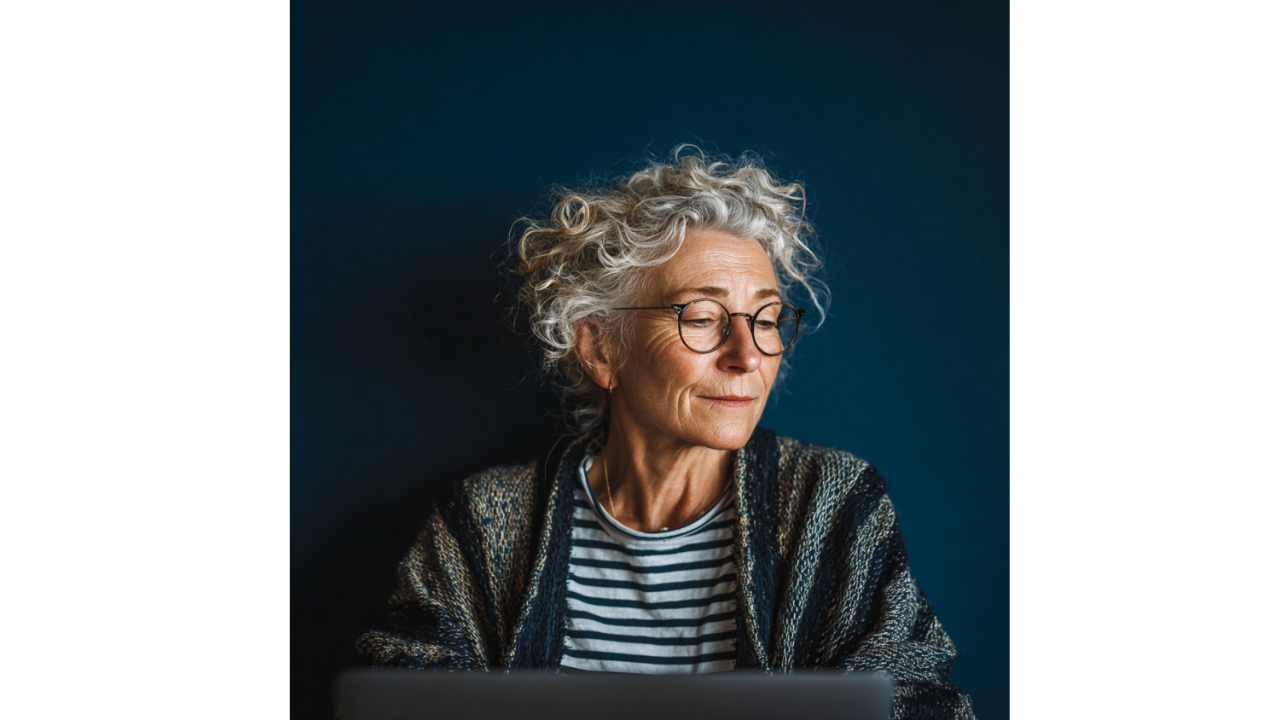Vogue Uses an AI Model and the Internet is Tripping
There's something beautifully dystopian about watching an industry built on aspiration systematically destroy its own foundation. Last week, Vogue's...
3 min read
 Writing Team
:
Aug 25, 2025 10:00:10 AM
Writing Team
:
Aug 25, 2025 10:00:10 AM

Vogue's latest issue featured something unsettling: a curvy blonde AI model in a light blue romper, hawking Guess products with the kind of perfected beauty that would make a Renaissance master weep. Meanwhile, H&M paraded "digital twins" of real models across their campaigns, like some twisted Black Mirror episode where corporations discovered they could clone workers without the messy business of paying them fairly.
Here's the brutal arithmetic: AI could eliminate half of entry-level white-collar jobs within the next five years, and modeling—an industry already rife with exploitation—sits squarely in the crosshairs. The Bureau of Labor Statistics projects employment of models nationwide will remain unchanged from 2023 to 2033, but that's before factoring in an AI gold rush that treats human likeness as freely extractable ore.
Companies like Kartel.ai promise models they're "getting ahead of AI" by creating digital clones of themselves. It's the same logic that convinced musicians to put their work on Spotify—sure, you'll make pennies, but at least you're "embracing disruption." Hannah James, the 25-year-old model quoted in the LA Times piece, captures the horrible choice perfectly: worry that digital replicas will render her obsolete, or participate in her own replacement.
"While the technology may be new, the problem is already an everyday reality for models, many of whom can walk into stores and see their bodies in campaigns they were never paid for," notes Sara Ziff of the Model Alliance. Think about that for a moment. Your face, your body, your years of craft—all digitized and recycled without your knowledge or consent.
This isn't innovation; it's digital sharecropping with a veneer of technological sophistication.
The financial incentives are sickeningly clear. The market for AI-generated images, art, and avatars is projected to exceed $0.92 billion by 2030, while over 96% of deepfake content today involves the non-consensual use of individuals' likenesses. AI models don't get sick, don't demand overtime, don't unionize, and crucially—don't own themselves.
Recent legislation like California's AB 2602 attempts to address this digital Wild West, requiring explicit consent for digital replicas and professional representation in negotiations. But laws always lag behind technology, and enforcement is another matter entirely.
The Tennessee ELVIS Act and federal NO FAKES Act represent progress, but they're Band-Aids on a hemorrhage. With 87% of Americans reporting difficulty distinguishing facts from fiction in online AI content, we're already deep in uncanny valley territory where authentic human representation becomes a luxury good.
Here's the cruel irony: as AI models proliferate, genuine human modeling might become more valuable, not less. Think natural wine or artisanal bread—when everything's mass-produced, scarcity commands premium pricing. But this creates a two-tiered system where only elite models survive while entry-level positions vanish entirely.
Critics argue that AI models could perpetuate unrealistic beauty standards and reduce authenticity in fashion marketing, which misses the point entirely. We're not debating beauty standards—we're witnessing the systematic commodification of human identity itself.
Fashion has always been about selling dreams, but now we're selling digital ghosts. When Guess uses an AI model instead of hiring Hannah James or someone like her, they're not just cutting costs—they're severing the last connection between fashion and humanity.
The question isn't whether AI will transform modeling. It already has. The question is whether we'll allow an entire industry to be rebuilt around extracting value from human likeness while excluding humans from the equation.
If we're serious about ethical AI deployment, we need to stop pretending that "getting ahead of AI" means participating in our own obsolescence. Instead, we need robust protections, fair compensation models, and recognition that human creativity—including the craft of modeling—has intrinsic value that can't be replicated or stolen.
The modeling industry's AI moment is a canary in the coal mine for every profession where human authenticity matters. Today it's fashion models seeing their digital twins strutting down virtual runways. Tomorrow it might be your face selling products you've never touched, your voice narrating stories you never told.
We can demand better. We can insist on consent that means something, compensation that reflects value, and innovation that enhances rather than erases human participation. But only if we recognize that behind every "digital twin" is a person whose livelihood—and dignity—hangs in the balance.
The future of work shouldn't mean working ourselves out of existence. Especially when the profits flow everywhere except back to the humans who made it possible.
Ready to harness AI's power while protecting what makes your brand authentically human? Winsome Marketing's growth experts help companies navigate the intersection of technology and humanity—maximizing AI's potential without losing your soul. Let's talk.

There's something beautifully dystopian about watching an industry built on aspiration systematically destroy its own foundation. Last week, Vogue's...

While everyone's debating whether ChatGPT can write better emails, the real AI revolution is quietly building virtual snow globes in corporate R&D...

Most AI alignment conversations fixate on preventing systems from destroying humanity. Google DeepMind just published research on a different kind of...